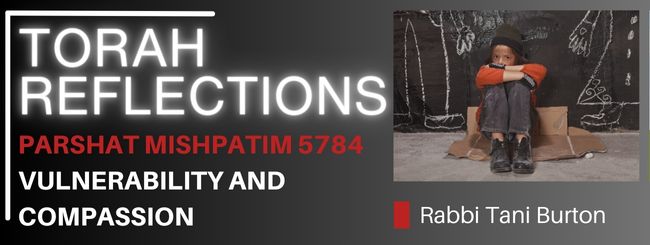Torah Reflections: Conversations on the Weekly Parshah
בס”ד
Integrating Torah into one’s life through reflection and conversation can be an incredibly fun and engaging experience. It’s a journey of discovery, where ancient wisdom and timeless teachings come to life in our daily experiences. Through reflection, we have the opportunity to dive deep into the rich tapestry of Torah, extracting profound insights and lessons that resonate with our modern lives. The joy lies in the ‘aha’ moments, those instances when a Torah verse or story suddenly connects with our personal challenges, aspirations, and values. And when we engage in conversations about Torah with others, it becomes an interactive exploration, where diverse perspectives and interpretations enhance our understanding. These dialogues often spark excitement and intellectual curiosity, making the learning process both enjoyable and fulfilling. Torah becomes a vibrant and dynamic part of our lives, offering not just guidance but also a source of endless fascination, connection, and growth.
NOTE: Don’t feel obligated to go through every source or answer all the questions—unless you want to. Even one source, or one question will give you plenty of material for discussion and meditation. Enjoy this!
Some thoughts from the parsha
20And you shall not mistreat a stranger, nor shall you oppress him, for you were strangers in the land of Egypt. | כוְגֵ֥ר לֹֽא־תוֹנֶ֖ה וְלֹ֣א תִלְחָצֶ֑נּוּ כִּֽי־גֵרִ֥ים הֱיִיתֶ֖ם בְּאֶ֥רֶץ מִצְרָֽיִם: | |
| 21You shall not oppress any widow or orphan. | כאכָּל־אַלְמָנָ֥ה וְיָת֖וֹם לֹ֥א תְעַנּֽוּן: | |
| 22If you oppress him, [beware,] for if he cries out to Me, I will surely hear his cry. | כבאִם־עַנֵּ֥ה תְעַנֵּה אֹת֑וֹ כִּ֣י אִם־צָעֹ֤ק יִצְעַק֙ אֵלַ֔י שָׁמֹ֥עַ אֶשְׁמַ֖ע צַֽעֲקָתֽוֹ: | |
| 23My wrath will be kindled, and I will slay you with the sword, and your wives will be widows and your children orphans. | כגוְחָרָ֣ה אַפִּ֔י וְהָֽרַגְתִּ֥י אֶתְכֶ֖ם בֶּחָ֑רֶב וְהָי֤וּ נְשֵׁיכֶם֙ אַלְמָנ֔וֹת וּבְנֵיכֶ֖ם יְתֹמִֽים: |
The verses from Exodus (22:20-23) underscore the significance of compassion and empathy, particularly towards strangers, widows, and orphans. In the context of the text, the term “stranger” refers to someone from another land, likely unfamiliar with the local language and customs. The verse emphasizes the vulnerability of such individuals, prompting the need for extra protection. The connection to the Israelites’ experience as strangers in Egypt (referenced in Exodus) serves as a reminder to extend empathy.
The severity of the punishment, including death and the widowhood and orphanhood of one’s wife and children, is deeply connected to the oppression of widows and orphans highlighted in the text. Widows and orphans are inherently vulnerable, lacking the support, companionship, and protection typically provided by a husband or family. Taking advantage of their vulnerable state is considered a grave offense, symbolizing a departure from compassion and humanity.
The punishment of death signifies the seriousness of mistreating vulnerable individuals, serving as a powerful deterrent against cruelty. Rendering one’s wife a widow and one’s child an orphan extends the consequences beyond the individual transgressor, highlighting the ripple effect of cruelty and reinforcing the broader moral imperative to protect the weak and marginalized.
The laws also address the harm caused by hurtful words, emphasizing the significance of compassion, especially for those lacking support or feeling out of place. The Torah encourages introspection on how one would feel if their loved ones were in a similar situation, fostering a desire for the well-being of all.
Questions for Personal Reflection
- Can you recall a time when you felt like a “stranger” in a new or unfamiliar environment, and how did it influence your perspective on compassion for others in similar situations?
- Reflecting on personal experiences, how do you think mistreatment affects individuals who are vulnerable, such as widows or orphans, and why is it crucial to consider their well-being?
- Have you ever been on the receiving end of hurtful words or actions, especially when you were feeling unsupported or out of your element? How did it impact you, and does that influence how you treat others now?
- Considering your relationships, how do you think you would feel if your loved ones were in a situation where they lacked support and protection? How does this reflection connect to the importance of cultivating compassion?
- In moments of insensitivity or cruelty, have you noticed any consequences on your own well-being or relationships? How does the idea of one’s actions affecting not only themselves but also their loved ones resonate with you personally?
Shabbat Shalom!
By Rabbi Tani Burton
© Copyright, all rights reserved. If you enjoyed this article, we encourage you to distribute it further.
Our blogs may contain text/quotes/references/links that include copyright material of Mechon-Mamre.org, Aish.com, Sefaria.org, Chabad.org, and/or AskNoah.org, which we use in accordance with their policies.
